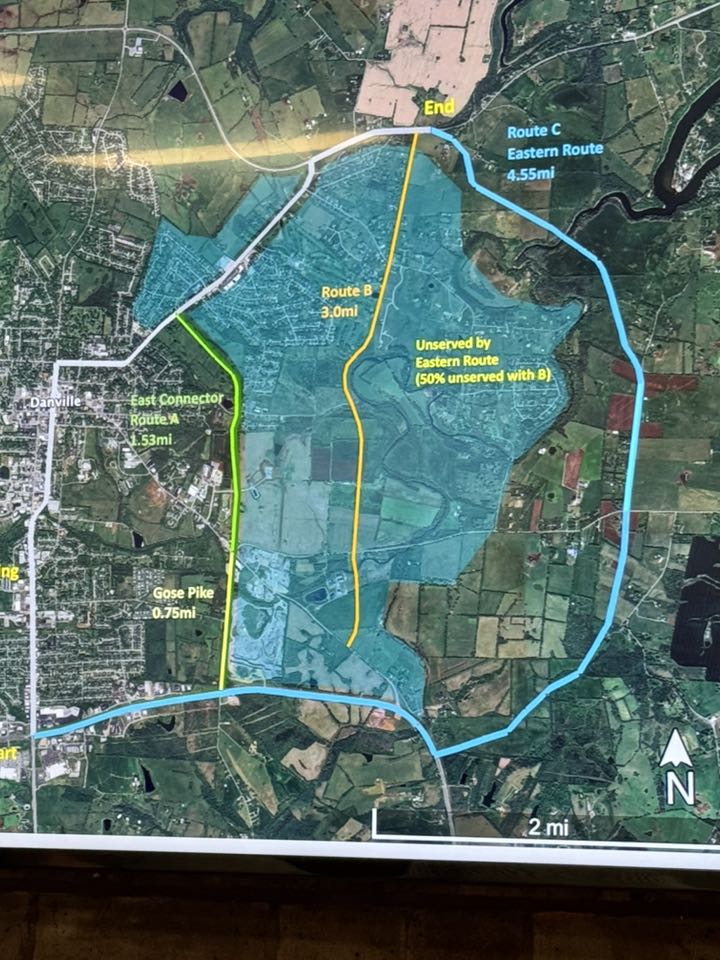Rotary hosts Orndorff, Haigh on March 11
Published 9:00 am Wednesday, March 22, 2017
DANVILLE ROTARY
News release
Elizabeth Orndorff and Tony Haigh were Rotary’s guests March 11, 2017. Orndorff is president of the Scarlet Cup Theater and winner of International Mystery Writers Festival in 2007 and the Southern Playwrights Competition in 2008.
Trending
In 2009, her play “Aidan’s Gift” won the Kentucky Theatre Association’s playwriting award. Haigh is professor of dramatic arts and former chairman of the Division of Arts and Humanities at Centre College. Haigh is a Fellow of Rose Bruford College of Theatre and Performance in London.
Scarlet Cup Theater began as an idea in the fall of 2014 when Linda Granacher and Orndorff had a creative lunch: why not start a site-specific theater that featured contemporary and classic plays, original works, international dramas and comedies–complementing offerings by other local theaters. They immediately got Haigh of Centre on board.
Scarlet Cup is a new kind of theater: no planned out season, no permanent space, no fundraising. Scarlet Cup is an occasional and unexpected theater. When the principals find a play they love, they hand-pick a cast and search for an appropriate venue. They aim for no more than two productions a year. Their actors and crew are paid. They scour central Kentucky for the very best acting and technical talent. With the Community Arts Center of Danville as their fiscal sponsor, the Scarlet Cup Theater enjoys the benefits of non-profit status and online ticket sales.
Haigh said that art teaches artists to embrace failure, and failure is an important part of learning for all of us. It was his lead-in to announcing that The Scarlett Cup Theater had to cancel its planned opening of their first 2017 play, “The Mountaintop,” a play by American playwright Katori Hall. It was planned to open in the first week of April. He said the cancellation was necessary because the actor playing the leading role “got a gig that paid a lot more money.” Ordinarily that might not be so important, but in this case it was too big to overcome.
Why was it too big to overcome? Because “The Mountaintop” is a fictional depiction of the Rev. Martin Luther King Jr.’s last night on earth, set entirely in room 306 of the Lorraine Motel on the eve of his assassination in 1968. The actor who dropped out of the production at the last minute was a New York actor who previously played Dr. King. Not only was it difficult finding a suitable actor for such a demanding role, the timing was also critical. According to Haigh, the rule of thumb in theater is that a minute of stage time requires an hour of rehearsal time — and that is exclusive of all the supportive tasks. Supportive tasks include things like finding a suitable location, creating the stage sets, finding financing, etc.. In the case of the “The Mountaintop,” finding a well suited location to stage the play is particularly challenging. Because of the play’s content, it is important to tie the play to the stage setting and the demographic of the audience.
This kind of consideration is particularly important in staging The Mountaintop, because “I’ve Been to the Mountaintop” is the popular name of the last speech delivered by Martin Luther King Jr. The play portrays Dr. King’s conversations with an angel sent to bring him “home.” The angel brings him a cup of coffee and a newspaper. He is made aware of his pending death and his legacy: his role in the African-American community; in the history of American is explored.
Trending
Asked if “The Mountaintop” would be stage in the future, Haigh looked to Orndorff before answering, and then said, “Absolutely. We have already paid the royalties for the production. Next year, will be the 50th anniversary of Dr. King’s death, so we will be trying very to put it all together.
“So, does anyone have a perfect setting to stage The Mountaintop?”






